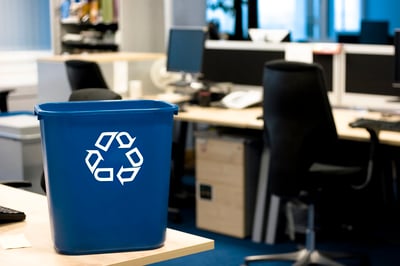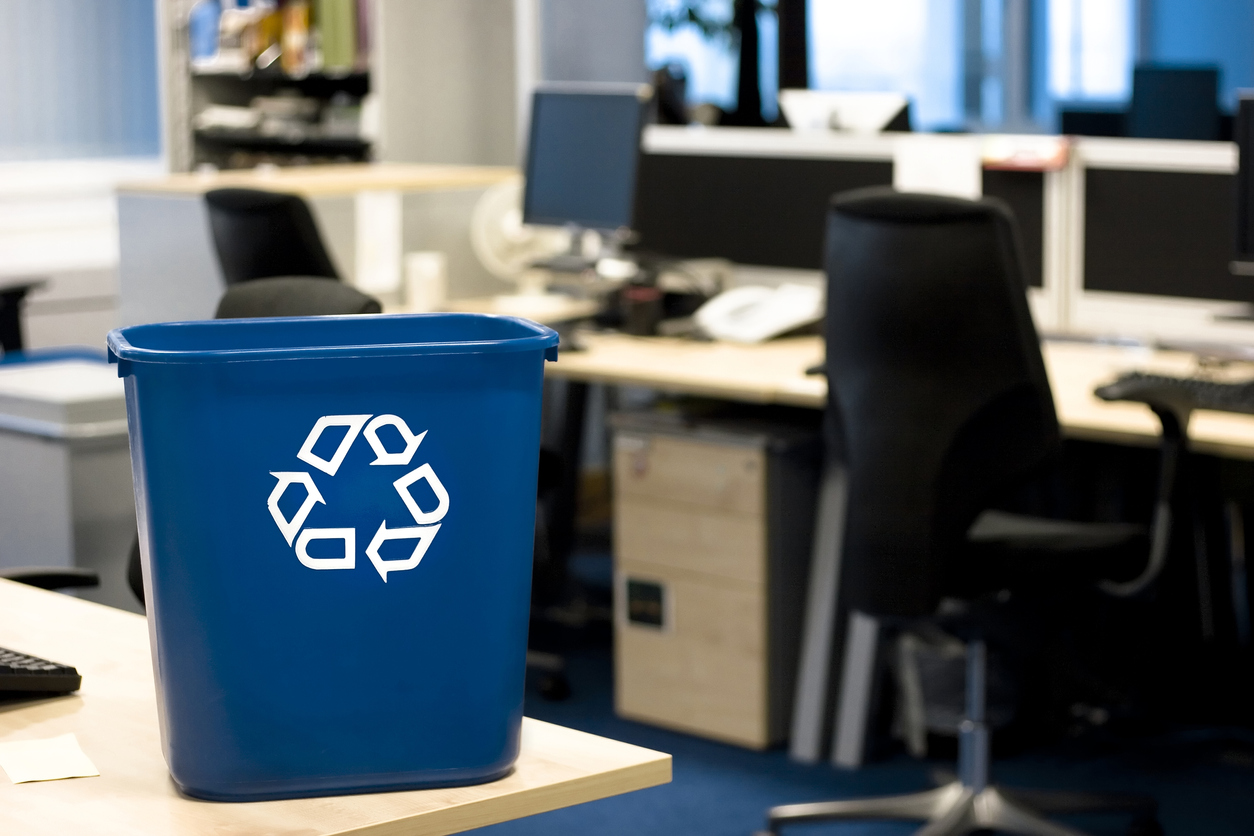 Whether you’re upgrading your communications systems for better efficiency and productivity or gathering broken radios to take in for repairs, there’s likely a box of equipment somewhere that needs to be handled.
Whether you’re upgrading your communications systems for better efficiency and productivity or gathering broken radios to take in for repairs, there’s likely a box of equipment somewhere that needs to be handled.
Finding the best way to dispose of used communications equipment is a key part of two-way radio maintenance. Old communications equipment can contain potentially hazardous materials like mercury or lead, and need to be disposed of responsibly and safely so they do not harm the environment. That equipment can include a variety of different parts:
- Two-way radios or walkie‑talkies
- Network equipment, like processors and modules
- Batteries, chargers and cords
- Antennas
- Other accessories
When to recycle and when to replace
When deciding the best next move for equipment, there are a few scenarios where it may make sense to attempt recycling:
-
When equipment cannot be repaired
-
When the cost to repair is higher than the price to replace
-
If your equipment is 20‑30 years old
Broken or non working equipment should be tested for repair. If the tests indicate it can’t be repaired, it will need to be replaced. Often this is because replacements for the broken or malfunctioning parts are no longer available.
If repair costs end up totaling as much or more than the cost to replace it, then it’s best to recycle the equipment. Your new equipment will also likely include a better warranty.
Older equipment tends to be usable once parts are outdated or unavailable, and will also need to be recycled.
Which equipment can be recycled?
Batteries must always be recycled according to federal regulations. The Mercury‑Containing and Rechargeable Battery Act requires nickel cadmium and lead batteries to be managed as Universal Waste. Though Illinois does not have state laws that govern how to recycle batteries, companies are expected to follow federal guidelines for safe disposal.
Similarly, anything with an electric circuit should be recycled as many of the parts can be reused.
What are my options?
Donation
Various nonprofit organizations that serve underprivileged or military families, charities and emergency services accept donations. The equipment must be in working condition.
Selling
While making a few bucks on your equipment may sound promising, keep in mind that older equipment has a lower resale value. Once a new owner needs an unavailable part, the equipment will likely need to be recycled.
Take‑back Initiatives
Manufacturers like Motorola Solutions run take‑back initiatives that allow companies to drop off used equipment to be reused for parts. This includes network equipment, enterprise mobility solutions equipment and batteries.
Trade-In
Some two-way radio solution providers, including Chicago Communications, have two-way radio trade-in programs that provide significant discounts when you trade in your used radios for new ones.
Other Technology Companies
Big electronic retailers, like Best Buy and Staples, and IT asset disposition companies have recycling services that focus on disposal methods over recycling.
Equipment Recycling with ChiComm
As a provider of full two‑way radio communications systems,Chicago Communications offers our customers convenient and cost‑effective recycling as part of our services. Equipment can be picked up for recycling or mailed in, whichever is more convenient for you.
In providing services and products to our customers,Chicago Communications will take equipment that our customers have no use for—including equipment not purchased from us:
- Batteries
- Two-way radios
- Transmitters
- Repeaters
- Duplexers
- Antenna equipment
- Any other two‑way radio equipment
- CPUs and computers
Many products are software based now, so old components can be stored and used for repair. If we can’t use or recycle it, we work to get rid of it in another eco‑friendly way by partnering with companies that do safe and legal equipment disposal. We also offer referrals to agencies that take in equipment and build and resell in exchange for a small stipend that can be used toward the purchase of new equipment.
If you are in need of equipment recycling services, contact us for a consultation.



